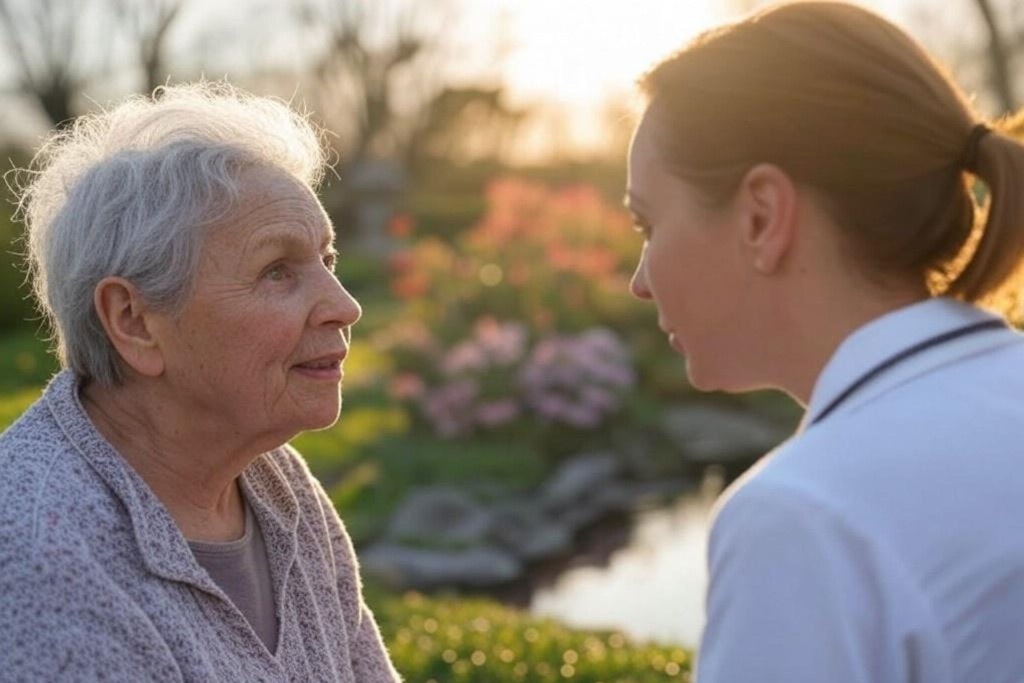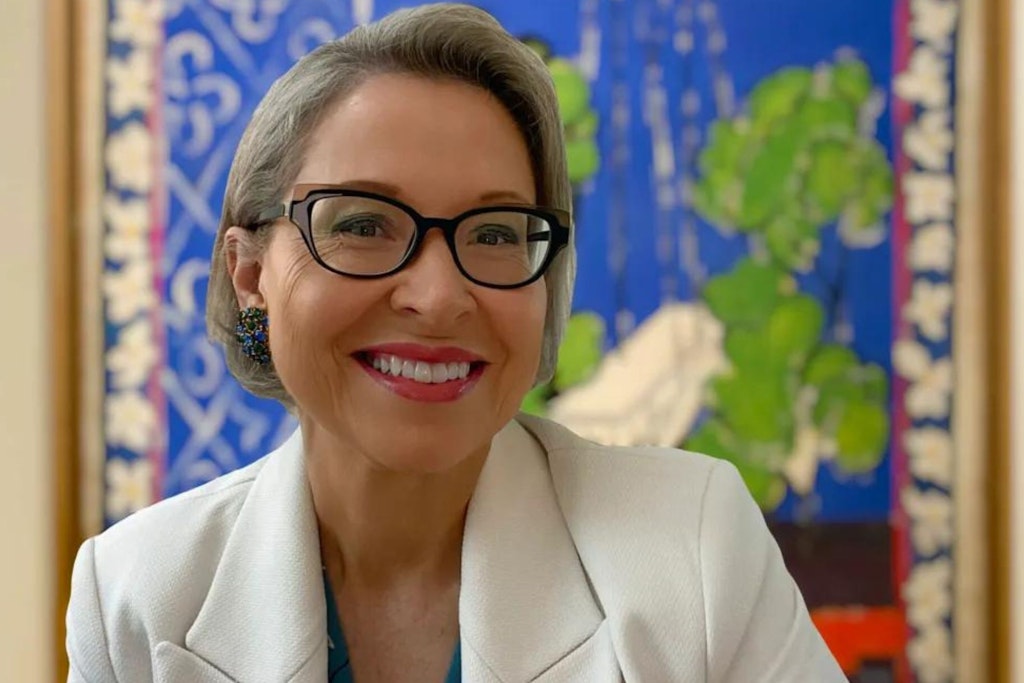The passionate plea to elevate spiritual care in aged care
Last updated on 22 January 2025

For many, spirituality offers a sense of belonging, meaning and purpose. However, it can often be overlooked as a critical service in aged care.
A new discussion paper from the peak body for championing spiritual care, Meaningful Ageing Australia, has sparked fresh interest in spiritual care as it seeks dedicated funding, greater recognition and increased support for spiritual care practitioners.
Key points
- In Enhancing Spiritual Care and Emotional Wellbeing in Aged Care, Meaningful Ageing Australia explores some of the key issues with funding of spiritual care in Australia’s aged care system
- It highlights a lack of specific funding for spiritual care in aged care despite it being common practice for defence forces, prisons and schools
- Spiritual care will be relevant under the strengthened aged care quality standards as part of Standard 1 – The Person
- First Nations and culturally and linguistically diverse (CALD) communities are among those that place the most importance on spirituality and its connection to health and wellbeing
There is a deep pool of research and emerging evidence showing that spiritual care is an essential part of holistic care, with the World Health Organisation among those that recognise its link to quality of life.
It is also viewed as an important domain of health and can often be measured in four domains of connectedness: to oneself, others, nature and the transcendent. This is, of course, not the only way spirituality is measured or viewed.
Despite the evidence, many providers fund spiritual care out of their own pockets. This includes the notable number of not-for-profit, faith-based providers in Australia.
Meaningful Ageing Australia (MAA) CEO Rachael Wass told Hello Leaders that aged care providers often stretch their resources to the limit to provide invaluable services to older people.
She emphasised that spiritual care can directly influence emotional well-being in older people and the aged care workforce, highlighting its significance in an emotionally draining environment.
“Spirituality is like a vitamin that’s sometimes missing and you don’t realise that until you receive it. Sometimes spiritual care needs are small but they make an incredible impact,” Ms Wass said.
“We want everyone to feel at ease and make the most of their next stage of life. Care delivery that’s very holistic and embraces spirituality encourages employees to connect on a more human level. It helps to enable an individual’s sources of meaning and purpose.
“Just think what could be possible if that workforce was properly funded and they could be active members of multidisciplinary teams. This would positively influence their colleagues too as up to 50% of their time often goes to supporting staff.”
Embracing spiritual care
For MAA, the core issue is the lack of specific funding for spiritual care practitioners. This leaves aged care lagging behind other sectors such as schools, prisons and the defence forces.
“There’s an inequality that exists. Funding is allocated for spiritual care practitioners in a range of different sectors yet you would say it’s just as important if not more important to have that support in aged care,” Ms Wass said.

“These liminal spaces that as we age, are almost a doorway to important times like palliative care. It does mean that spirituality, having spiritual care practitioners or a workforce that understands spirituality will benefit people.
“It doesn’t necessarily always take the pain away, but it makes a difference for a person. It could help someone living with dementia, who doesn’t receive visitors or has experience loss. They need someone to journey with them.”
This person could offer support in advance care planning, quality of life assessments or simply by talking and listening.
Additionally, spirituality is prominent for First Nations people and older people from CALD communities. The lack of culturally appropriate models of care in some aged care corners and limited spiritual care funding has a heightened negative outcome for many people.
As part of its discussion paper, MAA is advocating for greater recognition of spiritual care and has made the following recommendations:
- Advocate for a culturally safe and appropriate model of care for aged care, in line with The National Guidelines for Spiritual Care in Aged Care
- Spiritual care should be listed as an eligible emotional support service in the guidelines for the Support at Home Program
- Spiritual care should be listed as an eligible emotional support service in the guidelines for the End of Life Pathway operating within the Support at Home Program
- Spiritual care should be listed as an eligible emotional support service in the care minutes targets applying from 1 January 2025
- Spiritual Care Practitioners should be recognised as highly trained professionals and valued members of multidisciplinary teams in their own right
- Gather additional information on the scale of the spiritual care workforce
Some of these recommendations will come to fruition. MAA and the Aged & Community Care Providers Association (ACCPA) will conduct a benchmarking survey on the extent of the spiritual care workforce this year.
MAA will also update its National Guidelines for Spiritual Care in Aged Care this year.
Meanwhile, Ms Wass is optimistic that this discussion paper will lead to positive outcomes alongside other notable initiatives. She said the strengthened Aged Care Quality Standards offer a much-needed view of person-centred care incorporating spirituality.
MAA’s work with other stakeholders, including ACCPA, the National Aboriginal and Torres Strait Islander Ageing and Aged Care Council (NATSIAACC) and Partners in Culturally Appropriate Care (PICAC) will also lead to collaboration and impactful conversations about spiritual care in aged care.
“There has been interest from the Department of Health and Aged Care with the quality indicators to look at how spirituality could be incorporated into some assessment processes,” Ms Wass added.
“There’s positivity around spiritual care, but like anything when we’re talking about change, it doesn’t happen immediately. But I feel positive that 2025 is a year people can come together.”